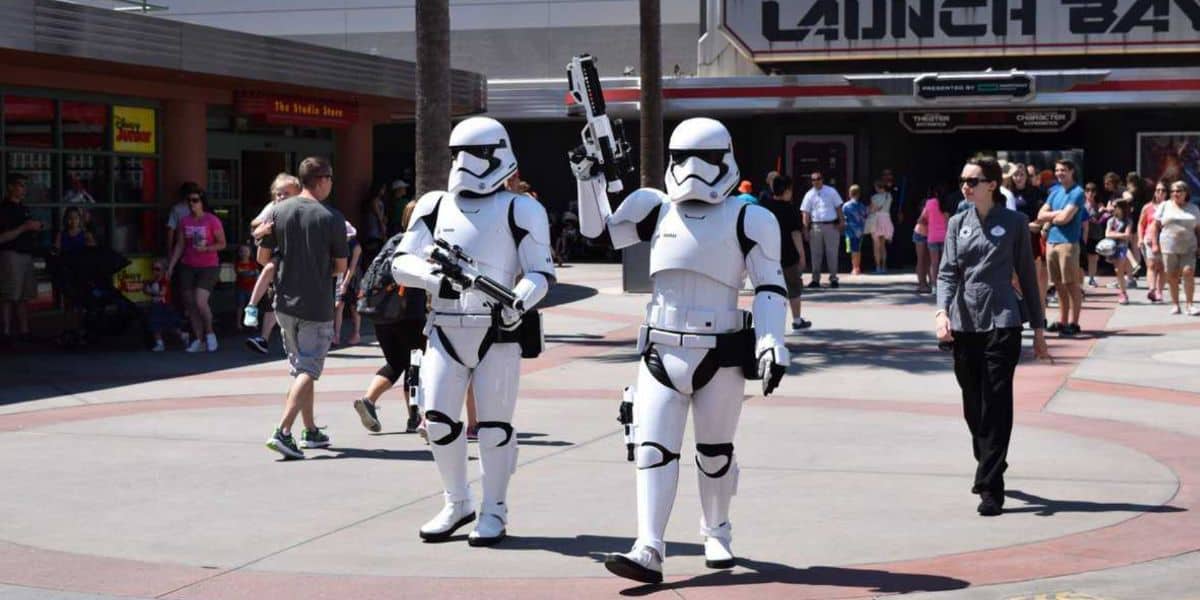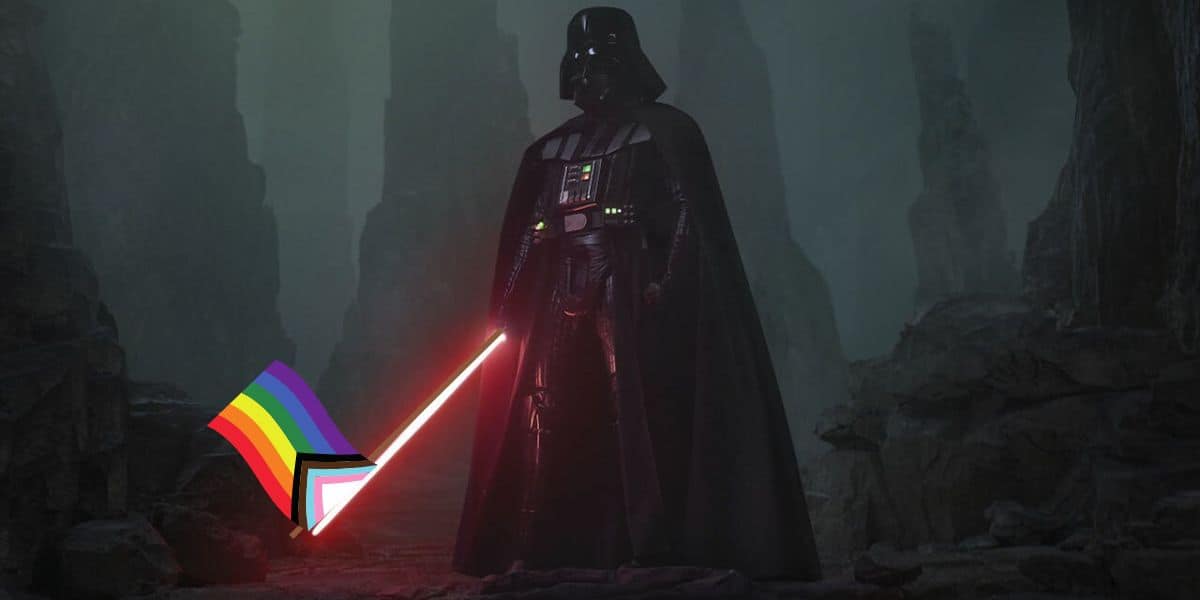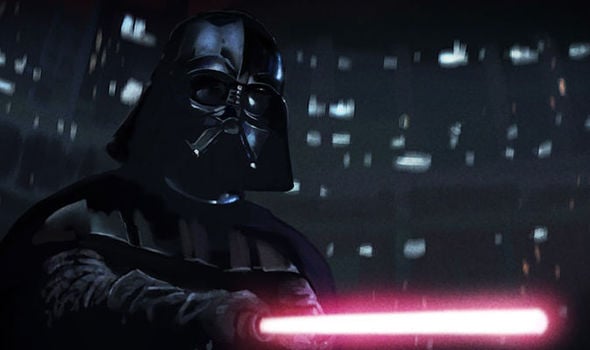DC Man Suing Police For Playing Darth Vader’s Theme Music at National Guard
Incident Details Surrounding the Detainment
A recent incident in Washington, D.C., has sparked significant interest after a local man became embroiled in a legal battle following his detainment by police. The man, identified as Sam O’Hara, was confronting the presence of the National Guard in the nation’s capital by using a unique method of protest—playing the “Imperial March,” the iconic theme music of Darth Vader from the Star Wars franchise.

O’Hara decided to follow the National Guard personnel through D.C. while playing the “Imperial March” on a portable speaker. He intended to add humor to the serious atmosphere surrounding the National Guard’s deployment amidst ongoing nationwide protests. Many observers viewed his antics as lighthearted commentary on political matters, although not everyone found it amusing.
Initially, some National Guardsmen appeared to take O’Hara’s stunt lightly. However, the mood shifted when an Ohio National Guardsman confronted him, demanding he cease the music. After O’Hara refused to stop, the Guardsman summoned the Metropolitan Police Department, leading to O’Hara being handcuffed and detained onsite. The event quickly transformed from a playful protest into a legal controversy.
Legal Implications of the Case
In the wake of the detainment, the American Civil Liberties Union (ACLU) filed a lawsuit against multiple Metropolitan Police Department officers and a member of the Ohio National Guard. The lawsuit claims violations of First and Fourth Amendment rights, false arrest, and battery. The legal team argues that O’Hara’s actions constituted protected speech under the First Amendment.
The lawsuit’s central arguments suggest that police overstepped their authority by detaining O’Hara for a peaceful protest. The lawsuit highlights his 15—to 20-minute detention without charges as an unlawful seizure. The ACLU’s attorneys assert that the right to peaceful protest is foundational to democracy, and actions that suppress this right must be challenged.
The lawsuit raises critical questions about civil liberties in relation to law enforcement’s reaction to public demonstrations. The First Amendment guarantees freedom of speech, while the Fourth Amendment protects individuals against unreasonable searches and seizures. O’Hara’s case is a focal point for discussions about how law enforcement handles unconventional forms of protest.
Public Reaction and Protest Dynamics
News of O’Hara’s detainment quickly spread, capturing public attention. Initial reactions ranged from support for his right to protest to concern over police conduct. Many viewed the situation as indicative of broader tensions between law enforcement and citizens exercising their democratic rights.

Platforms such as TikTok played a significant role in amplifying O’Hara’s story, with videos of his protest garnering over a million views. The content resonated with social media users, leading to widespread engagement and commentary on the appropriateness of police responses to whimsical protests. Hashtags related to the incident trended, reflecting a mixture of amusement and outrage among viewers.
O’Hara’s unique approach to activism contrasts with more conventional methods seen in recent protests. While some demonstrators have taken serious stances against government actions, O’Hara’s humorous tactic introduces a playful element to activism. This divergence showcases the range of strategies used to draw attention to political issues, allowing for diverse expressions of civil disobedience.
Future Considerations and Outcomes
As the lawsuit progresses, its outcome could shape how law enforcement officers respond to various forms of protest. If the court favors O’Hara, it may set a precedent that reinforces the boundaries of police authority concerning peaceful demonstrations. Legal experts will closely monitor the implications, especially regarding First Amendment rights.
The incident also raises significant considerations about the future of protests in America. How law enforcement navigates humor and satire in activism could impact the dynamics of public demonstrations. The O’Hara case serves as a reminder that the right to protest can encompass various expressions, encouraging a broader discourse on acceptable forms of civil disobedience.
As demonstrated by O’Hara’s use of the “Imperial March,” humor plays a key role in making activism accessible and relatable. Activists may engage a wider audience by infusing comedy into serious political conversations, but they must also be aware of the potential pushback from authorities. As society grapples with these issues, the balance between free expression and law enforcement responses will remain a pivotal topic for discussion.

The legal proceedings following O’Hara’s detention for playing the “Imperial March” are poised to draw significant attention, not only for their immediate implications but also for the broader dialogue they stimulate about free speech and the nature of protest in contemporary society.





